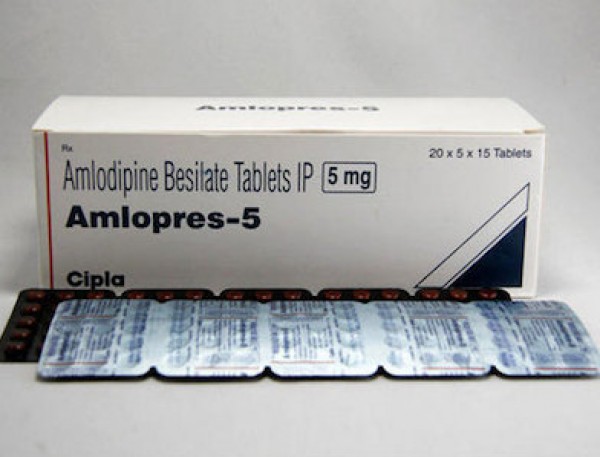Norvasc is in a group of drugs called calcium channel blockers. It dilates blood vessels and slows the heart to reduce blood pressure and the pain of angina. Norvasc is used to treat high blood pressure (hypertension) or angina (chest pain caused by lack of oxygen in the heart muscle due to clogged arteries). Norvasc may also be used for other purposes not listed here.
The health and medical information provided here is for general purposes only and is not a substitute for the expertise and judgment of your physician, or other health care professional. It should not be understood to indicate that the use of this medicine is safe, appropriate or effective for you. Always consult your health care professional before using this, or any other, drug.
Before taking Norvasc, tell your doctor if you have congestive heart failure or liver disease.
Avoid drinking alcohol while taking Norvasc. Alcohol can further lower your blood pressure and may increase some of the side effects of Norvasc.
If you are being treated for high blood pressure, keep using this medication even if you feel fine. You may need to use blood pressure medication for the rest of your life.
Norvasc is only part of a complete program of treatment that may also include diet, exercise, weight control, and other medications. Follow your diet, medication, and exercise routines very closely.
Tell your doctor about all other heart or blood pressure medications you are taking.
Your chest pain may become worse when you first start taking Norvasc or when your dose is increased. Call your doctor if your chest pain is severe or ongoing.
Get emergency medical help if you have any of these signs of an allergic reaction: hives; difficulty breathing; swelling of your face, lips, tongue, or throat. Call your doctor at once if you have a serious side effect such as:
feeling like you might pass out;
swelling in your hands, ankles, or feet;
chest pain;
slow, fast, or pounding heartbeats;
easy bruising or bleeding, unusual weakness;
numbness, burning, pain, or tingly feeling; or
jaundice (yellowing of your skin or eyes).
Less serious Norvasc side effects may include:
headache;
drowsiness, depression, nervousness;
dizziness, spinning sensation;
warmth or redness under your skin;
nausea, vomiting, stomach pain, loss of appetite;
diarrhea, constipation;
urinating more than usual;
sleep problems (insomnia);
strange dreams;
mild skin rash or itching;
joint or muscle pain;
dry mouth, thirst, increased sweating; or
weight changes.
Take Norvasc exactly as prescribed by your doctor. Do not take it in larger amounts or for longer than recommended. Follow the directions on your prescription label.
Norvasc is usually taken once daily. Your doctor may occasionally change your dose to make sure you get the best results from this medication.
Your chest pain may become worse when you first start taking Norvasc or when your dose is increased. Call your doctor if your chest pain is severe or ongoing.
Norvasc is only part of a complete program of treatment that may also include diet, exercise, weight control, and other medications. Follow your diet, medication, and exercise routines very closely.
If you are being treated for high blood pressure, keep using this medication even if you feel fine. High blood pressure often has no symptoms, so you may not know when your blood pressure is high. You may need to use blood pressure medication for the rest of your life.



